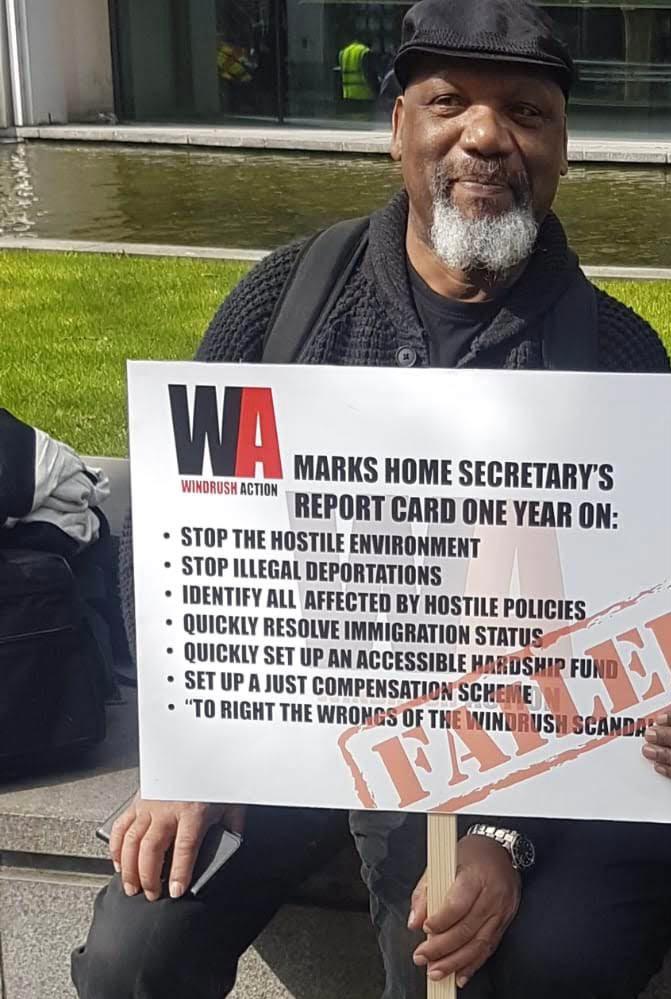Windrush compensation scheme ‘not fit for purpose’ as only 1% of appeals successful
Exclusive: Just 42 of the 3,479 appeals last year were successful, new figures show
Your support helps us to tell the story
From reproductive rights to climate change to Big Tech, The Independent is on the ground when the story is developing. Whether it's investigating the financials of Elon Musk's pro-Trump PAC or producing our latest documentary, 'The A Word', which shines a light on the American women fighting for reproductive rights, we know how important it is to parse out the facts from the messaging.
At such a critical moment in US history, we need reporters on the ground. Your donation allows us to keep sending journalists to speak to both sides of the story.
The Independent is trusted by Americans across the entire political spectrum. And unlike many other quality news outlets, we choose not to lock Americans out of our reporting and analysis with paywalls. We believe quality journalism should be available to everyone, paid for by those who can afford it.
Your support makes all the difference.The government has been accused of “marking its own homework” over the Windrush compensation appeals process as new figures reveal only 1 per cent of payout reviews were successful.
Freedom of information data attained by Labour MP Kate Osamor and shared exclusively with The Independent shows that of 3,479 claimant appeals in 2021, only 42 resulted in a settlement.
The Edmonton MP said the appeals process was “not fit for purpose” and Windrush claimants are being told to “take it or leave it” when they receive offers.
“The Home Office perpetrated the Windrush Scandal. Now they are deciding how much compensation should be awarded to their victims. The result is unsurprising – consistent and poor-quality decision making resulting in insultingly small offers of compensation,” Ms Osamor told The Independent.
She added: “Under those circumstances a fully independent and functioning appeals process is essential. That isn’t what we have.”
Windrush claimant, Auckland Elwaldo Romeo, who was wrongly denied British citizenship for 13 years, said he rejected a £40,000 payout from the Home Office and is now taking his claim to the Parliamentary Ombudsman.
Mr Romeo, 67, was born in Antigua before coming to the UK as a four-year-old but was later told he was not a citizen when he tried to renew his British passport.

“£40,000 is not even a year’s salary for someone who works at the Home Office but for 13 years they want to pay me less than what someone gets paid in one year,” he told The Independent.
“Because we’re a Black community they want to dictate how much they pay. They don’t want us to go to court because if one of us is found [to have been] underpaid, it would open the doors for everyone – now it’s a matter of finding lawyers,” the Londoner added.
The appeal process allows claimants to request a review of their compensation sum if they find it unsatisfactory. Reviews are divided into two tiers, with appeals from tier one claimants considered by a “senior reviewer” who was not involved in the original payout decision.
Claimants can then escalate their appeal to a tier two review, which is sent to an independent adjudicator, who makes a recommendation on the offer which the Home Office can either uphold or reject.
Of 3,020 tier one review outcomes in 2021, only 38 were successful (1 per cent), while of 459 tier two review outcomes in 2021 only four (.08 per cent) were successful.
Joel Oswald, also from London, is appealing a zero-sum award offered to his 89-year-old grandmother, Dorothy Oswald-Williams, who was told she wasn’t a British citizen and had her passport taken from her after coming to the UK in 1962 in her twenties and working and paying taxes in Britain.
Mr Oswald said his grandmother, who now lives in Jamaica, spent years fighting to regain her citizenship status and was forced to travel back to Jamaica to seek medical treatment because her incorrectly assigned status did not give her free access to the NHS.

Mr Oswald said that the process with the Home Office had been “arduous and painful” and he faced up to a year’s wait for a response on his original claim.
“She spent most of the 1980s and 1990s trying to regain her status and she did eventually get her indefinite leave to remain but by then she was a retired woman and lost a lot of life in the UK,” Mr Oswald told The Independent.
“By that time she had already accepted defeat in a way.
He added: “Now she’s well into retirement age and hasn’t been able to enjoy her retirement and live in the UK. She should be able to. Her kids have had to fight for visas and temporary stay for her when she wants to come over. She finds that indignifying, she finds it embarrassing.
“My grandmother is proud of her British connections so she’s grieved by the way she has been treated by British immigration officials.”
Mr Oswald said he was hopeful of a positive outcome for his appeal but has been disappointed by the running of the scheme.
Kate Osamor added: “Not only is it not independent of government, but the Home Office can reject or accept ‘review’ outcomes. It’s therefore unsurprising but still shocking that almost no victims of the scandal are winning appeals. The government is marking its own homework. Survivors of the Windrush scandal are being told to take it or leave it.”
“We need to take the compensation scheme out of the hands of the perpetrators of this scandal and give claimants access to a truly independent appeals process. This isn’t good enough. The government continues to treat the Windrush generation with disdain. The Windrush scandal isn't over.”
Ramya Jaidev, co-founder of advocacy group Windrush Lives, said the low appeal success rate was “unsurprising” but highlighted the need for an independent body to oversee the scheme.
“It is high time we had a statutory, judge-led Windrush inquiry to blow the lid off the maladministration of this scheme and to openly and transparently investigate the failings which led to the scandal in the first place,” she said.
A Home Office spokesperson said: “We do not recognise these figures. We continue to work with claimants to pay the maximum award available at the earliest point possible and to get the right decision first time. The Windrush Compensation scheme has now paid out £46.7m across 1,163 claims, with a further £8.4m offered, awaiting acceptance or pending review.
“The mistreatment of the Windrush generation by successive governments was completely unacceptable and we are determined to right those wrongs.”





Join our commenting forum
Join thought-provoking conversations, follow other Independent readers and see their replies
Comments